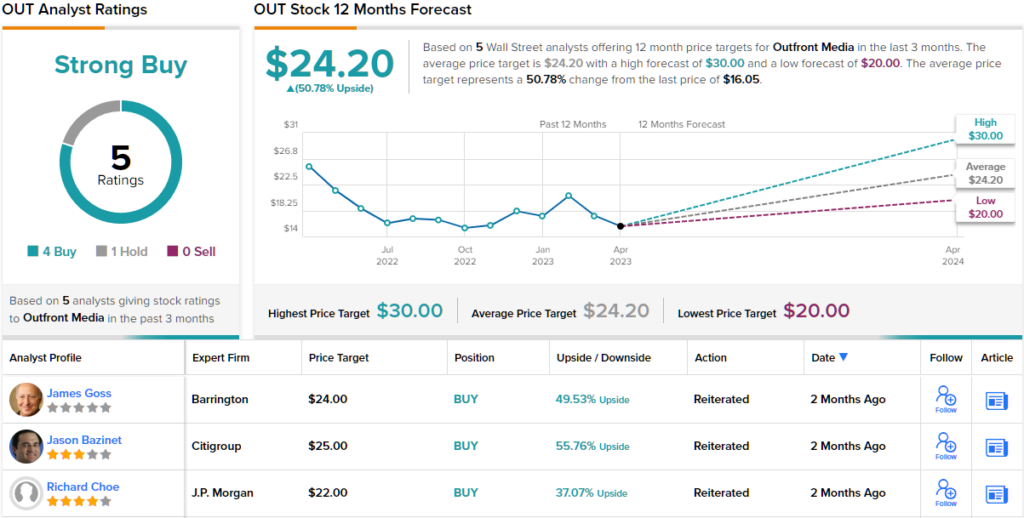Dividend stocks are the Swiss army knives of the stock market.
Pick the best stocks and maximize your portfolio:
- Discover top-rated stocks from highly ranked analysts with Analyst Top Stocks!
- Easily identify outperforming stocks and invest smarter with Top Smart Score Stocks
When dividend stocks go up, you make money. When they don’t go up — you still make money (from the dividend). Heck, even when a dividend stock goes down in price, it’s not all bad news, because the dividend yield (the absolute dividend amount, divided by the stock price) gets richer the more the stock falls in price.
Knowing all this, wouldn’t you like to find great dividend stocks? Of course you would.
J.P. Morgan analysts have chimed in – and they are recommending two high-yield dividend stocks for investors looking to find protection for their portfolio. These are stocks with a specific set of clear attributes: a dividend yield of at least 7% and Buy ratings. Let’s take a closer look.
Hess Midstream Partners (HESM)
We’ll start in the energy industry, a field that usually oozes money – and that money is frequently paid out in dividends. Hess Midstream got started as a spin-off from Hess Oil back in 2017, taking a pipeline operation off the parent company’s hands. Today, Hess Midstream owns and operates a network of hydrocarbon and liquid transport assets for oil, gas, and produced water in the Bakken and Three Forks shale plays, parts of the larger Williston Basin on the Montana-Dakota border area.
The Williston Basin is one of the most productive oil basins in North America, spanning across three states and the Canadian province of Saskatchewan. Hess’s assets in the area include oil and gas gathering facilities, gas plants, and transportation terminal facilities. As of last year, Hess had a total net processing capacity of 500 million cubic feet per day (MMcf/d).
Midstream energy transport is big business, and Hess realized $1.27 billion in total revenues last year, a total that was up 5.6% from the $1.2 billion realized in 2021.
Drilling down to the last reported quarter, 4Q22, we find that Hess, despite its consistent profitability and $1-billion-plus annual revenues, saw a miss on both the top and bottom lines. Quarterly revenue came to $314.6 million, down a half-percent year-over-year and missing the forecast by almost $13.3 million. At the bottom line, the net income attributable to Hess Midstream Partners was $21.8 million, or 49 cents per common share; this was down 2 cents, or 4%, from the prior year, and came in 5 cents below expectations.
On a note of particular interest to dividend investors, Hess generated a distributable cash flow of $202.6 million in Q4. This cash flow directly supported the company’s dividend, which was set at the last declaration, back in January, at 56.96 cents per common share. This dividend, paid out on February 13, annualized to $2.28, and yielded 8%. The dividend payment represented a 1.2% increase quarter-over-quarter, and a 5% increase on an annualized basis. Aside from during the COVID pandemic, the company has kept up a regular dividend payment since its 2017 spin-off.
This company’s ability to maintain its earnings forms the core of analyst Jeremy Tonet’s thesis for the stock, laid out in his recent JPMorgan note.
“Amongst the smid caps, we come away positive on HESM, which offers meaningful near term EBITDA growth levered to Bakken associated gas and contractual support… HESM’s integrated Bakken footprint provides a strategic advantage, with exposure both north of and south of the river…. HESM’s 2023 EBITDA guidance midpoint growth of 3% reflects high MVC payments in 2022 to physical volume growth in 2023, with EBITDA growth in 2023 primarily stemming from the inflation escalator,” Tonet opined.
Looking forward, Tonet gives HESM shares an Overweight (i.e. Buy) rating, with a $34 price target to imply a 20% upside in the next 12 months. Based on the current dividend yield and the expected price appreciation, the stock has ~28% potential total return profile. (To watch Tonet’s track record, click here)
All in all, other analysts are on the same page. 4 Buys and no Holds or Sells add up to a Strong Buy consensus rating. Based on the $34.75 average price target, the upside potential comes in at ~23%. (See HESM stock forecast)
Outfront Media (OUT)
From energy, we’ll shift over to marketing, where Outfront Media occupies an interesting specialty niche. Outfront specializes in billboard and poster advertising, old-school visual ads that have persisted even into today’s digital age. Outfront’s ads, including billboards and posters, plus urban transit ads, add a modern twist; the ads include electronic tech, in the form of video integrated into the billboard or poster.
Outfront boasts that its ads, despite being low-tech and old-school, are indispensable for modern advertisers. The company can display more than 500,000 ads, which generate over 16.6 billion impressions across more than 70 major US ad markets. These impressive numbers can help establish a strong connection between brands and customers.
One interesting artifact of Outfront’s model is the seasonal effect seen in the company’s revenues and earnings. Q1, falling in winter months, typically sees the company’s lowest results at both the top and bottom lines; Q4, with the holiday shopping season, brings in the highest numbers of the year. In the last quarter, 4Q22, this pattern held firm. Outfront brought in over $494 million in revenue, the highest in several years – although it came in just a hair below the forecast, missing by $0.67 million.
At the bottom line, the non-GAAP EPS also missed expectations. The 34 cents reported came in 3 cents below forecast, and 7 cents below the year-ago number. The combination of y/y revenue growth and a heavy miss in earnings signals declining profit margins; the company’s OIBDA margin fell y/y from nearly 37% to 35%.
On a positive note, Outfront’s cash generation was strong in 2022. The company saw its cash from operations reach $254.1 million by December 31, 2022, compared to $98.8 million in the prior year. The solid cash flow, driven by the higher revenues, funded the company’s dividend, which was generous. Outfront paid $205.8 million in dividend payments last year. This past February, the company declared the most recent div, a 30-cent per common share payment that went out on March 31. The dividend annualizes to $1.20 per share and yields 7.3%.
Among the bulls is JPMorgan analyst Richard Choe who presents a compelling argument in favor of investing in Outfront.
“Outfront Media has substantial exposure to national advertising at 45% of revenue that could grow at a high rate and leverage digital billboard conversions. We expect continued improvement in both billboard and transit revenue, but with quarter to quarter volatility. Longer term, we like Outfront’s growth story with increasing digital billboard conversions and industry-leading technology initiatives,” Choe explained.
Based on this view, Choe gives OUT shares an Overweight (i.e. Buy) rating, while his $22 price target indicates the stock has potential to gain 37% from current levels. (To watch Choe’s track record, click here)
What does the rest of the Street have to say? 4 Buys and 1 Hold have been issued in the last three months. Therefore, OUT gets a Strong Buy consensus rating. Based on the $50.67 average price target, shares could rise ~51% in the next year. (See OUT stock forecast)
To find good ideas for stocks trading at attractive valuations, visit TipRanks’ Best Stocks to Buy, a tool that unites all of TipRanks’ equity insights.
Disclaimer: The opinions expressed in this article are solely those of the featured analysts. The content is intended to be used for informational purposes only. It is very important to do your own analysis before making any investment.






















